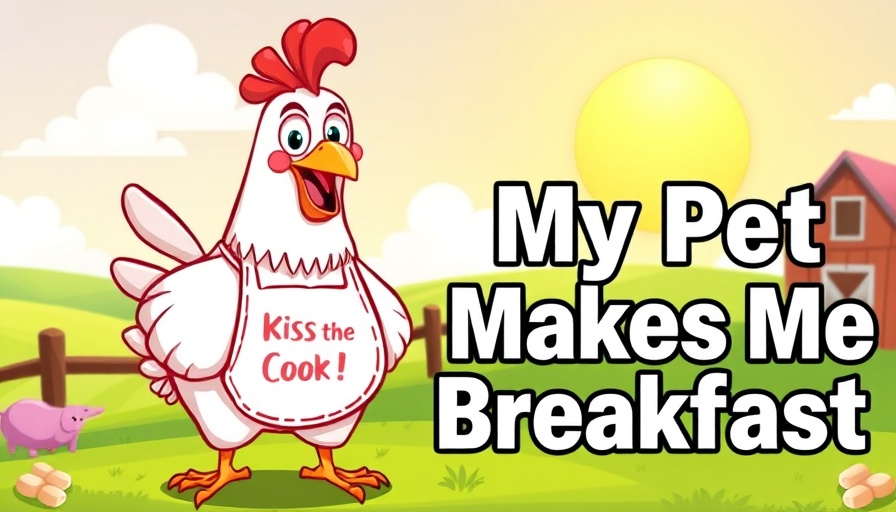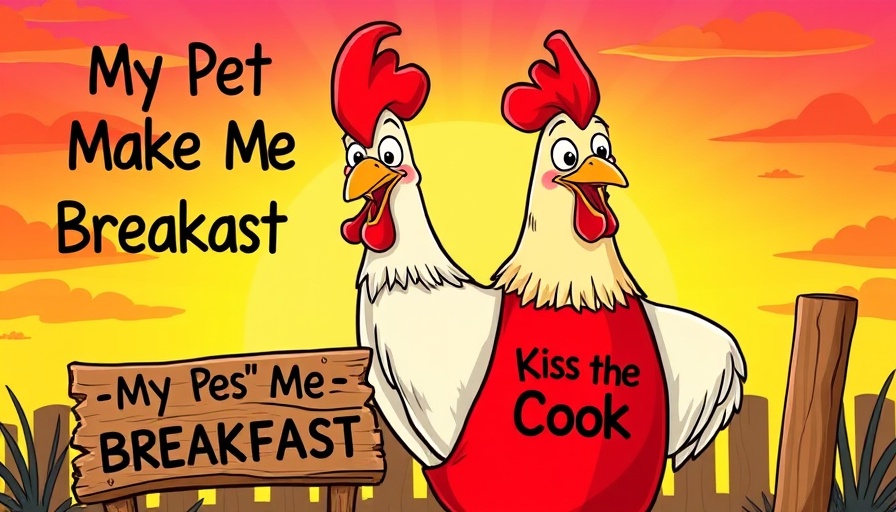
Reimagining Urban Life: Kentucky Residents Advocate for Backyard Chickens
Across Kentucky, a growing movement is pushing for the permissibility of backyard chickens, driven by local residents eager to connect with sustainable living practices and provide therapeutic benefits to their families. The call for change is resonating particularly in places like Northern Kentucky and Georgetown, where citizens are rallying around the notion that chickens supply not only eggs but also a sense of structure and connection to nature.
Why Chickens Matter: More Than Just Pets
The Wilson family of Lakeside Park serves as a prime example of how chickens can enhance family dynamics. Their personal motivation revolves around providing structure for their autistic daughter, Kirsten. “[Chickens] are very good for autistic children,” Jim Wilson explains, highlighting the benefits of routine and companionship these birds can offer. As they advocate for policy change, the Wilsons have found broad support, with their petition gathering over 200 signatures, illustrating a community-driven effort.
The Push for Ordinance Changes: Community Voices Amplified
In Georgetown, a correspondingly passionate campaign is underway to revise local ordinances that restrict all livestock. Lindsey Trent’s initiative has captured significant attention, garnering nearly 400 signatures, as residents seek a farm-to-table lifestyle within city limits. This grassroots approach underscores the collective yearning for a closer-knit community, where neighbors can exchange not just goods, but interactions that foster friendships.
Unique Benefits of Backyard Chickens: More than Eggs
Chickens do far more than provide fresh eggs; they build a connection with the land and enhance psychological well-being. Studies indicate that animal companionship, including that from chickens, can reduce anxiety and stress. This factor is particularly vital for families like the Wilsons, who see their chickens as part of a healing process. Each family advocating for chicken ownership aims to promote awareness of responsible animal care while also countering misconceptions regarding nuisances associated with poultry.
Looking Ahead: Future of Chickens in Kentucky
The future of urban chicken-keeping is bright yet contingent on community input and policy reformation. Municipalities have the opportunity to guide the conversation and craft ordinances that balance the needs of all residents. The supportive testimonies from individuals like Jim and Beth Wilson, along with Lindsey Trent, are changing perceptions and hinting at a blossoming trend towards urban agriculture.
As advocates prepare for city council meetings and public discussions, their efforts symbolize a broader movement towards sustainability and community connection. To get involved, keep an eye on local discussions about chicken ordinances and consider how such policies could impact your neighborhood.
 Add Row
Add Row  Add
Add 




Write A Comment